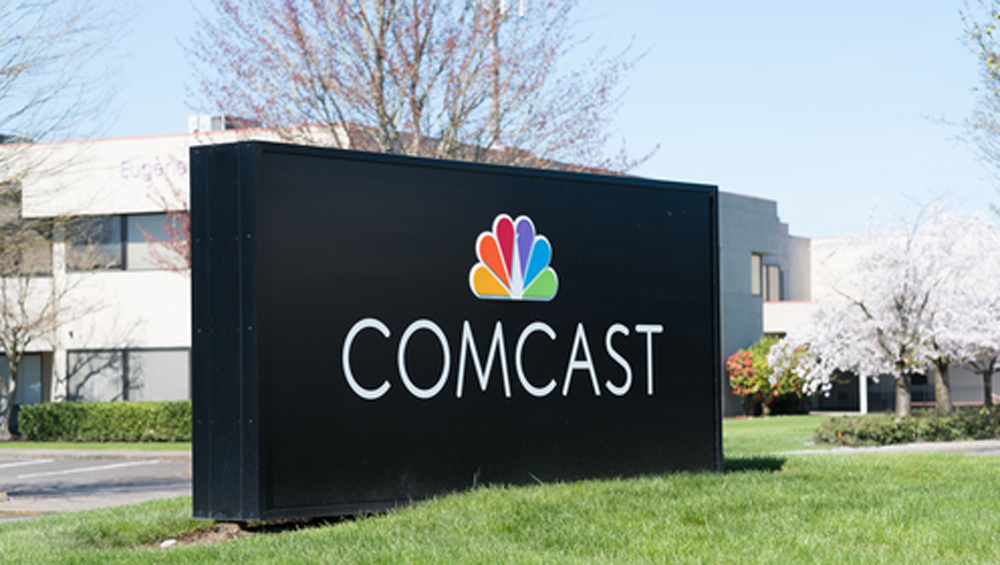
Comcast Stays The Course As Peacock Paid Subs Were Flat In 2Q

NBCUniversal highlighted a stronger-than-expected Upfront, as it reported a flat quarter for paid Peacock streaming subscribers at 13 million and an overall second quarter decline in advertising revenues. As reported Thursday morning, parent Comcast still beat Wall Street expectations with total revenues up 5.1% to just over $30 billion and adjusted earnings per share up 20.2% to $1.01.
In the company’s conference call with Wall Street analysts, Chairman-CEO Brian Roberts said: “NBCU Media remains a very healthy business. We just completed the highest-grossing upfront in our history — a testament to our content and a superb team, and the unique data and technology innovation we delivered through one platform. This year we secured more than $7 billion in commitments, including $1 billion at Peacock — double what we did in the 2021-22 season — along with strong pricing.”
Coming on the same day that the government reported the second consecutive quarter of GDP decline — the classic definition of recession — analysts wanted to know about macro trends in the Q&A session.
“The advertising market’s choppy,” said NBCUniversal CEO Jeff Shell.
“I think we said that last time. It continues to be choppy, down year-on-year in the scatter market. It’s really segment-by-segment based. Still, some segments are doing better. Some segments are doing worse.”
“We just finished the upfront, as Brian said in his opening, and the upfront was way better than we expected. So, definitely some choppiness, but really not dramatic,” Shell added. And, while NBCU ad revenues were down 1.3% for the quarter, he said that would have been a positive number if you exclude the NHL playoffs, which moved to Disney and Warner Bros. Discovery platforms this year.
Expanding on the advertising situation, Shell said auto is down, due to inventory constraints. “Pharma, in the upfront, was up significantly. You have a backlog of drugs that weren’t approved in the past couple of years, but are expected to be approved [post-pandemic]. What I mean by choppy is segment-by segment differences both up and down — and there’s no kind of macro overall ups and downs,” Shell told the analysts.
As competitors move to a mix of subscription and advertising monetization for streaming, Shell insisted that NBCU picked the right model for Peacock from the start. “As for advertising in general, our business — linear and add Peacock — we’re one of the largest advertiser [platforms] out there with over $10 billion in advertising, so people coming in at the levels they’re coming in, we don’t expect to have any material impact on what we sell and how we do it. If anything, our scale gives us an increasing advantage,” he said.
What about political?
Shell said: “We don’t want to count our chickens before they’re hatched, but we expect a pretty strong political season coming up. And I think our company — speaking broadly, our entire company, not just our linear business, but our local TV stations and Dave’s [Watson, CEO of Comcast Cable] business in cable — we’re kind of uniquely positioned, with Peacock, to take advantage of whatever a candidate wants to advertise and where, so we expect some pretty strong results from Peacock … and across our entire company.”
For the second quarter, NBCU Media revenue increased 3.6% to $5.3 billion, reflecting higher distribution revenue, partially offset by lower advertising revenue. Distribution revenue increased 8.4% to $2.7 billion, driven by increases at Peacock and contractual rate increases, partially offset by a decline in subscribers.
Comcast Corp. CFO Mike Cavanagh reported that NBCU Media advertising revenue decreased 1.3% to $2.2 billion, reflecting a decline in ratings and a higher number of sporting events in the prior year period, partially offset by higher pricing and additional Peacock sales. Adjusted EBITDA decreased 2.9% to $1.3 billion in the second quarter of 2022, reflecting higher operating expenses, which more than offset higher revenue. The increase in operating expenses was primarily due to higher costs at Peacock. Media results included $444 million of
revenue and an adjusted EBITDA loss of $467 million related to Peacock, compared to $122 million of revenue and an adjusted EBITDA loss of $363 million in the prior year period.
Meanwhile, at Comcast Cable, Cavanagh reported that advertising revenue was up 10% in the quarter to $748 million. He said that was “mainly fueled by political revenue, as well as strong growth at both our advanced advertising business, FreeWheel, and our streaming business, Xumo.” He added that those advertising gains were partially offset by a decline in Comcast Cable’s local core advertising business.
































Comments (0)